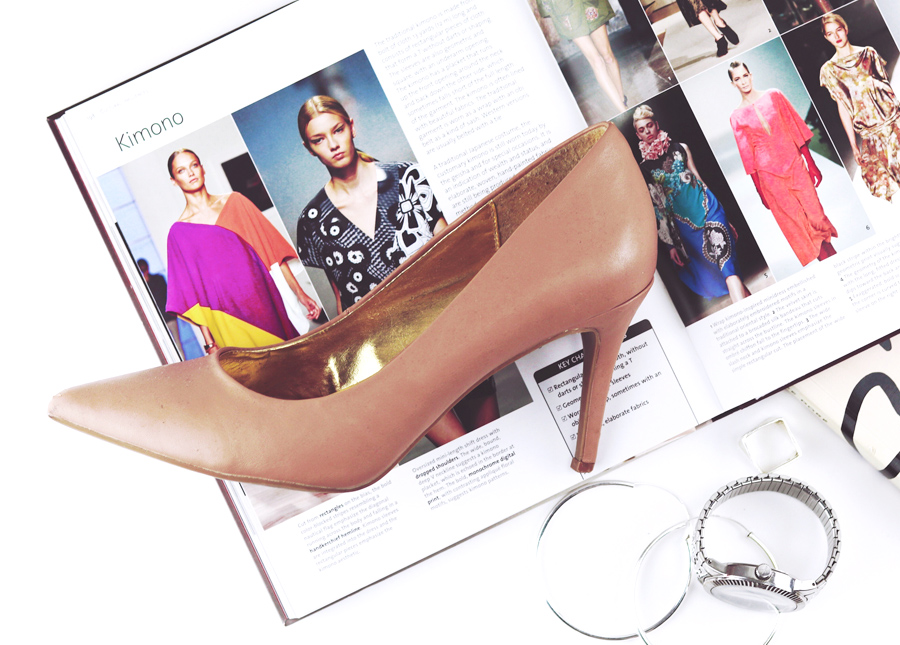What I Wish My 38-Year-Old Self Could Tell My 21-Year-Old Self About Money

Have you ever thought about the fact that, for most of our lives, we are taught how to make money, but no one really teaches us how to manage it? I remember taking an accounting class my senior year of high school, but I’ll be honest, I only really recall balancing a checkbook (does anyone even still do that?) and…that didn’t seem to help me much when I got my first credit card when I was 18 years old.
Like most households, my family didn’t talk about money except to confirm that it did not, in fact, grow on trees and “credit cards were bad.” So naturally, like every other young person, I wanted what was forbidden, and I got a credit card. At first, I rarely used it…but like most addictive things, it only took a couple of times to feel the zing and zip of the plastic purchase, and I was hooked.
Fast forward to a 21-year-old me living in New York City — my love for fancy coffees and lunchtime shopping trips had racked up $30,000 in credit card debt spread over 10 maxed out cards. Considering I barely made $30,000 a year, I was not in a good place. The power of the plastic was taking me down, and it wasn’t pretty.
It wasn’t until I had paid off that $30,000 in credit card debt and gave up shopping for a year that I realized what having a good relationship with money actually meant and just how vital it really is to your financial health.
Now 38, I’m grateful for the financial rollercoaster, but if I could impart any wisdom on my 21-year-old self about money, I’d tell her this:
1. Your Shopping Habit Isn’t Your Fault
WHAT? In our society, celebrations, and special occasions go hand-in-hand with shopping. Good grades, holidays, back to school, break-ups, engagements. The list goes on. We grow up learning to shop and developing habits around using retail therapy. Lesson: You, and you alone, did not create your habit. So go easy on yourself kid.
2. It’s Just Money, Not An Ex-Boyfriend
Money is a thing. It is a way for us to exchange goods and services. Don’t give it so much power over your life. Worrying about it will waste your precious energy — so move on, get over it, and work on a better relationship with it. Lesson: You control your money; money doesn’t control you.
3. Money Isn’t Complicated; Humans Are
Logic will have nothing to do with your financial decisions, so you better get really acquainted with your emotions. Latte when you’re happy? Latte when you’re sad? Target run because you’re bored? You will make decisions based on your emotions, and your budget won’t be able to do anything about it. Lesson: That money, that thing…it’s not complicating things, you are. Understand your emotions and it will change everything.
4. Math Has Nothing To Do With It
You can’t be good at money (because it’s a thing), but you can be good at managing it. Managing your money is a relationship skill. And what makes any skill better? Practice and time. You HAVE to practice, and you practice by paying attention to your money and spending time with it. Lesson: When you avoid your money and make excuses, it just makes it worse. Rip the band-aid off and look at your numbers, they’re just numbers. What is uncomfortable will become comfortable. Check your bank account every.single.day.
5. You Have Enough.
Nope, you don’t need another pair of boots or that cute handbag that you are ultimately going to throw to the bottom of your closet. Every single day we are surrounded by messages that tell us we aren’t enough and we need more. We don’t make enough money, we need a bigger house, we don’t have enough time, we need more options. What we aren’t ever told is that we have enough. In fact, most of us are living lives of extreme privilege. Lesson: You have enough. When you find yourself craving “more,” channel your inner minimalist and tell yourself less is more, because friend, it really is.
6. Take Care Of Your S***
If you went through all of your belongings and put a price tag to the things that were beat up and worn and were ready to be put to rest, you might have a heart attack. Because of this consumer society we live in, we have disposable behaviors, and those behaviors are expensive. If your parents ever told you to clean your room, they were actually saying, “Take care of your s***.” Lesson: Taking care of your things means you don’t have to replace them. That’s good for your bank account and good for the environment.
7. Your Money Situation Is Not A Reflection Of Your Value
If you had never learned how to ice skate, you wouldn’t expect to be able to hit the ice and skate an Olympic routine would you? Odds are, you didn’t learn anything about managing your money and what it means to create a good financial relationship. In fact, what you did learn is probably negative and inaccurate. You can’t have expectations of perfect finances if you never learned how to manage them, so don’t be upset with yourself for having made decisions that don’t turn out the way you had hoped. You can make new decisions. Lesson: You are an incredible human and your debt and money decisions have nothing to do with that.
Image via Unsplash

